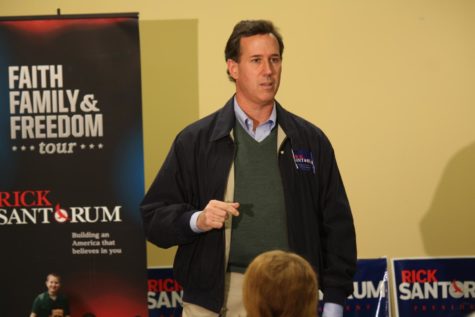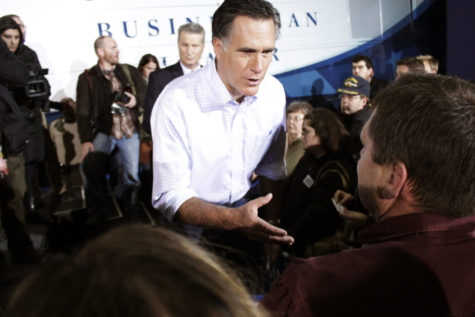Consevative group asks Republican candidates to sign ‘traditional marriage’ pledge
July 16, 2011
Representatives of The Family Leader, an Iowa conservative group, have asked Republican presidential candidates to sign a pledge that supports traditional marriage, which they consider to be marriage between one man and one woman.
The pledge was written by Bob Vander Plaats, who ran for governor of Iowa in 2010. The pledge is a response to the Iowa Supreme Court ruling in 2009 that deemed the ban on same-sex marriage unconstitutional.
In the 2010 election, Iowa voters recalled the three justices who voted to remove the ban on same-sex marriage. This marked the first time a member of the Supreme Court in Iowa has been rejected by the voters under the current system, which has been in place since 1962.
The only Republican candidates to have signed the pledge are Rep. Michele Bachmann of Minnesota and former Pennsylvania Sen. Rick Santorum.
“It’s not going to have an impact in the Iowa caucus,” said Dianne Bystrom, director of the Carrie Chapman Catt Center for Women and Politics. “This may generate some conservative support for Bachmann and Santorum.”
Bystrom said she believes that the pledge may have a backlash effect for the candidates who signed it.
“It locks you into promises you may not be able to keep,” Bystrom said. “And it has an effect of alienating people who are not conservative.”
Mack Shelley, university professor of political science and statistics, said that by signing the pledge, Bachmann and Santorum have gained an edge in the Iowa caucus.
“I think it is designed for people to contribute to conservative candidates like Bachmann,” Shelley said. “The Republican side is controlled by conservative elements in Iowa. This gives Bachmann a further advantage because her advantage is being so strong on family issues.”
Shelley also thinks that by signing the pledge, Bachmann separates herself from other Republican candidates.
“She is distinguishing herself from other nominees like Mitt Romney,” Shelley said.
Shelley said he believes that in order to win the national election, a candidate can’t lean heavily toward either side of the political spectrum.
“A candidate can’t get elected as an extreme conservative or an extreme liberal,” Shelley said.
The pledge has been heavily criticized because of its controversial statements, including a passage that reads “a child born into slavery in 1860 was more likely to be raised by his mother and father in a two-parent household than was an African-American baby born after the election of the USA’s first African-American President.”
“That’s a very controversial statement that most Americans will probably not agree with,” Bystrom said. “For the candidates that have signed the pledge, it can have a backlash effect. Candidates like Mitt Romney, Tim Pawlenty, and Herman Cain are doing the politically right thing by not signing it.”
Bob Vander Plaats was not available for comment.








